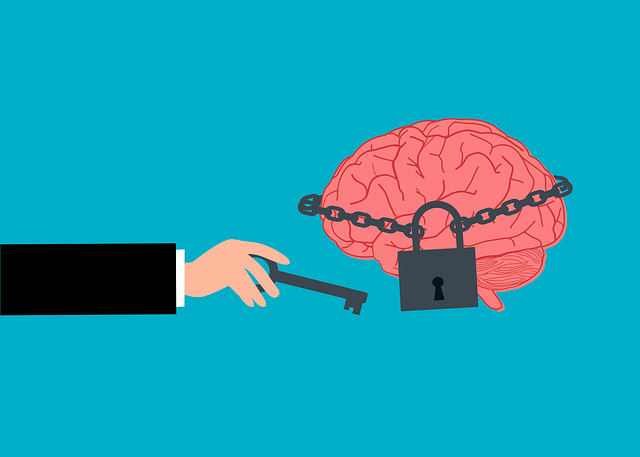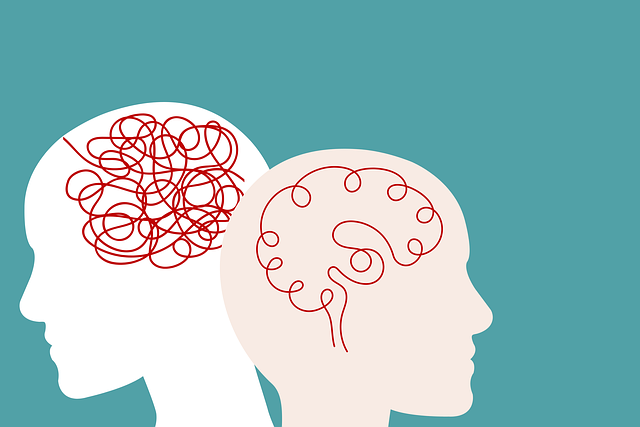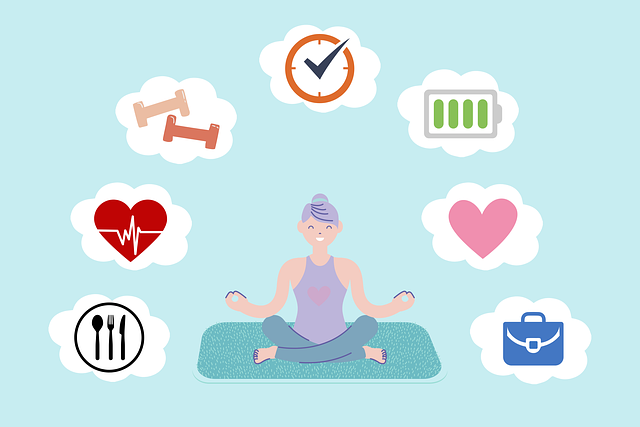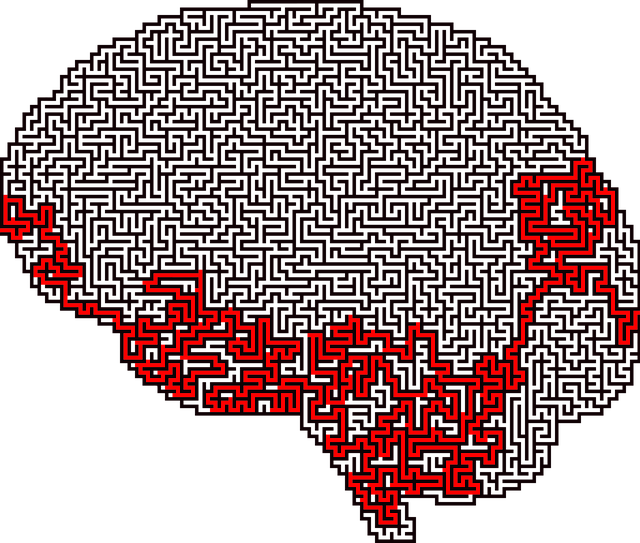In today's fast-paced world, mental wellness is often overlooked compared to physical health. To address this gap, self-assessment tools like those offered by Highlands Ranch Neuro Disorders Therapy (HRNDT) are gaining popularity as proactive measures for managing mental health. HRNDT combines a deep understanding of neurodisorders with tailored Empathy Building Strategies to create comprehensive, accessible, and confidential evaluations. These tools enable early detection and targeted interventions, such as Social Skills Training in community outreach programs, fostering supportive environments for personal growth and improved mental wellness. An ideal self-assessment should be holistic, culturally sensitive, and offer personalized recommendations for therapy or support groups, similar to those available at HRNDT. Continuous refinement through user feedback is crucial for these tools' effectiveness in supporting Self-Care Routine Development, Trauma Support, and Crisis Intervention Guidance.
In today’s fast-paced world, mental wellness is a paramount concern. Recognizing this need, Highlands Ranch Neuro Disorders Therapy has taken the lead in developing innovative self-assessment tools. This article explores the critical role such tools play in enhancing mental health awareness and accessibility to care. We delve into the process, methodologies, and strategies for creating effective assessments, highlighting the expertise of Highlands Ranch Neuro Disorders Therapy in fostering a comprehensive approach to mental wellness self-assessment.
- Understanding the Need for Mental Wellness Self-Assessment Tools
- The Role of Highlands Ranch Neuro Disorders Therapy in Development
- Key Components of an Effective Self-Assessment Tool
- Process and Methodologies for Creating Comprehensive Assessments
- Implementation, Feedback, and Continuous Improvement Strategies
Understanding the Need for Mental Wellness Self-Assessment Tools

In today’s fast-paced world, mental wellness is a crucial aspect of overall health, often overshadowed by physical well-being. Recognizing this need, many individuals and communities are turning to self-assessment tools as a proactive step towards managing their mental health. These tools play a pivotal role in empowering people to take charge of their psychological state, especially those seeking support for neurodisorders like those treated at Highlands Ranch Neuro Disorders Therapy. By offering accessible and confidential ways to evaluate one’s mental wellness, these assessments encourage early detection and intervention, which is essential for effective management.
The development of such tools aligns with the broader application of Mind Over Matter principles, promoting self-awareness and personal growth. Moreover, they can facilitate targeted interventions, such as Social Skills Training, within community outreach programs. These initiatives aim to create a supportive environment where individuals can learn, grow, and access necessary resources, ultimately improving their overall mental wellness.
The Role of Highlands Ranch Neuro Disorders Therapy in Development

Highlands Ranch Neuro Disorders Therapy plays a pivotal role in the development of mental wellness self-assessment tools. Their expertise lies in understanding the intricate nuances of neurodisorders, which is essential for creating comprehensive and effective assessment methods. By employing tailored Empathy Building Strategies, therapists can ensure these tools capture the unique experiences and challenges faced by individuals with various mental health conditions. This personalized approach fosters accurate evaluations, enabling professionals to deliver targeted interventions.
Moreover, Highlands Ranch Neuro Disorders Therapy’s focus on promoting Positive Thinking aligns perfectly with the goal of self-assessment tools. These therapies assist in identifying cognitive patterns and beliefs that may hinder overall well-being. Through Risk Management Planning for Mental Health Professionals, therapists guide the development of resources that support practitioners in navigating complex cases while prioritizing client safety. This holistic integration of expertise ensures that the resulting self-assessment tools are not only scientifically sound but also empathetic and beneficial to both users and mental health professionals alike.
Key Components of an Effective Self-Assessment Tool

An effective mental wellness self-assessment tool should incorporate several key components to ensure it provides valuable insights and guides users toward improvement. Firstly, it must be user-friendly, allowing individuals from diverse backgrounds, including those with varying levels of literacy or technological proficiency, to navigate and complete it easily. The tool should then offer a comprehensive range of questions that delve into different aspects of mental wellness, such as emotional state, thinking patterns, behavior, and social interactions. This can be achieved by integrating assessments for anxiety, depression, stress management, and coping strategies, among others.
Additionally, incorporating Cultural Sensitivity in Mental Healthcare Practice is vital to ensure the tool resonates with users from different cultural backgrounds. Questions should be inclusive and avoid stereotypes or assumptions, allowing individuals to accurately reflect their experiences. Further, the self-assessment should promote Resilience Building and Coping Skills Development by providing resources or guidance for further exploration after the initial assessment. This could include personalized recommendations for relevant therapy types, support groups, or coping mechanisms tailored to individual needs.
Process and Methodologies for Creating Comprehensive Assessments

Developing comprehensive mental wellness self-assessment tools requires a meticulous process and robust methodologies to ensure their effectiveness and validity. The first step involves identifying key areas of focus, such as emotional well-being, stress management, and coping mechanisms, which can be tailored to specific populations like those seeking Highlands Ranch Neuro Disorders Therapy. This may involve conducting extensive literature reviews and consulting with mental health professionals to establish a solid framework for the assessment.
Methodologies should include evidence-based techniques, such as structured interviews, self-report questionnaires, and behavioral observations, to capture multidimensional aspects of mental wellness. Incorporating tools that assess both positive and negative symptoms, as well as functional impairment, allows for a holistic understanding of an individual’s mental health status. Moreover, integrating feedback from users and continually refining the assessments through pilot testing ensures their relevance and applicability in supporting Self-Care Routine Development for Better Mental Health, providing effective Trauma Support Services, and offering Crisis Intervention Guidance.
Implementation, Feedback, and Continuous Improvement Strategies

Implementing a self-assessment tool for mental wellness is just the first step. To ensure its effectiveness and relevance, continuous feedback loops are essential. Encourage users to provide honest yet constructive feedback on their experience with the assessment. This can be done through anonymous surveys or direct communication channels, allowing them to highlight areas they found valuable and point out any gaps or shortcomings. At Highlands Ranch Neuro Disorders Therapy, we’ve successfully incorporated Empathy Building Strategies and Emotional Intelligence exercises into our practice, fostering deeper connections with clients and refining our approach accordingly.
Feedback should then be meticulously analyzed and used to guide improvements. Regularly review user suggestions, trends in feedback, and emerging research on mental health assessment tools. Incorporate these insights to enhance the tool’s accuracy, accessibility, and usability. Mindfulness Meditation techniques can also play a role in this process, helping team members stay attuned to the evolving needs of the users. Through dynamic adjustments based on feedback and continuous improvement strategies, self-assessment tools can become powerful allies in navigating mental wellness journeys, just like Highlands Ranch Neuro Disorders Therapy aims to do for its clients.
Mental wellness self-assessment tools are vital resources that empower individuals to take charge of their mental health. As highlighted by the expertise of Highlands Ranch Neuro Disorders Therapy, these tools play a crucial role in early detection and intervention. By combining comprehensive assessments with user-friendly interfaces, we can ensure that people have access to effective, evidence-based resources for managing their well-being. Continuous improvement through feedback loops and data analysis is essential to creating tools that resonate with diverse populations and adapt to evolving mental health needs.














